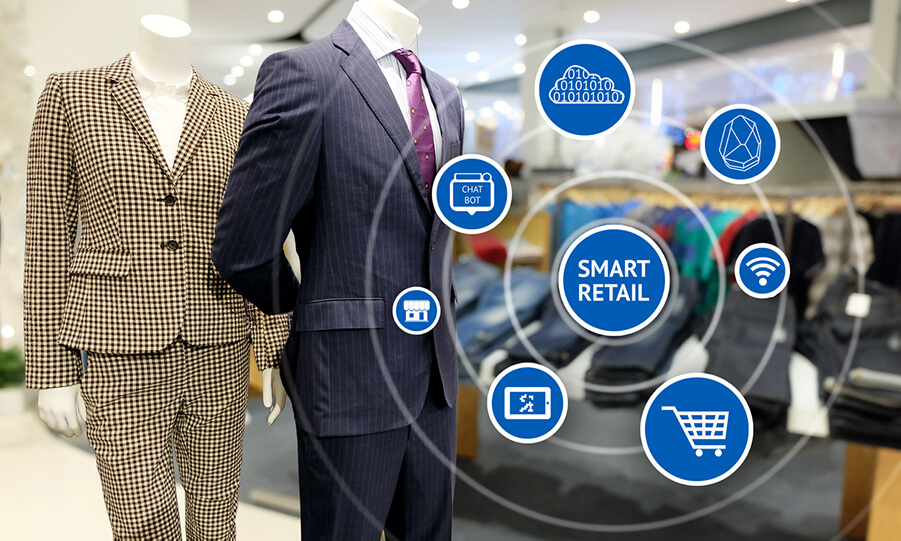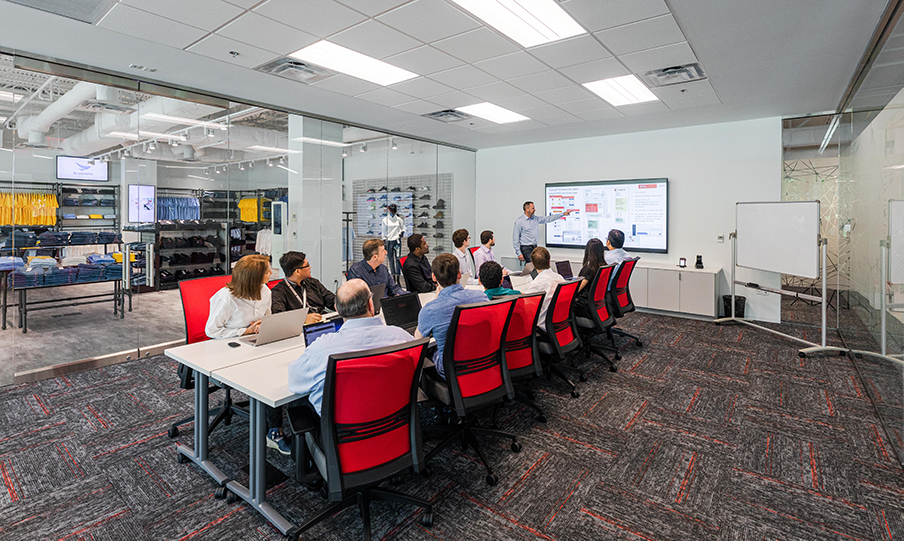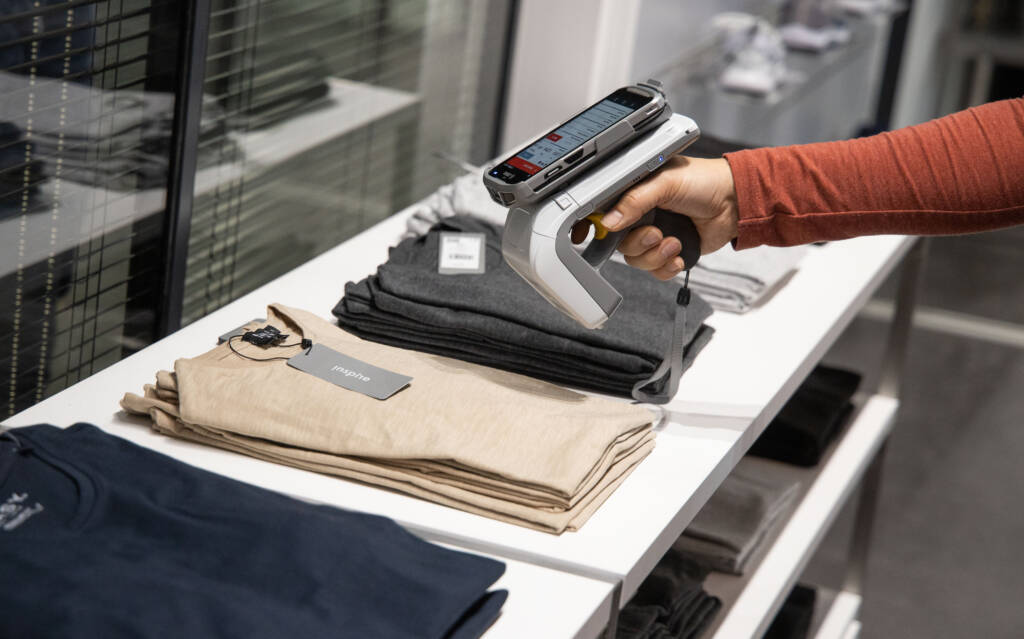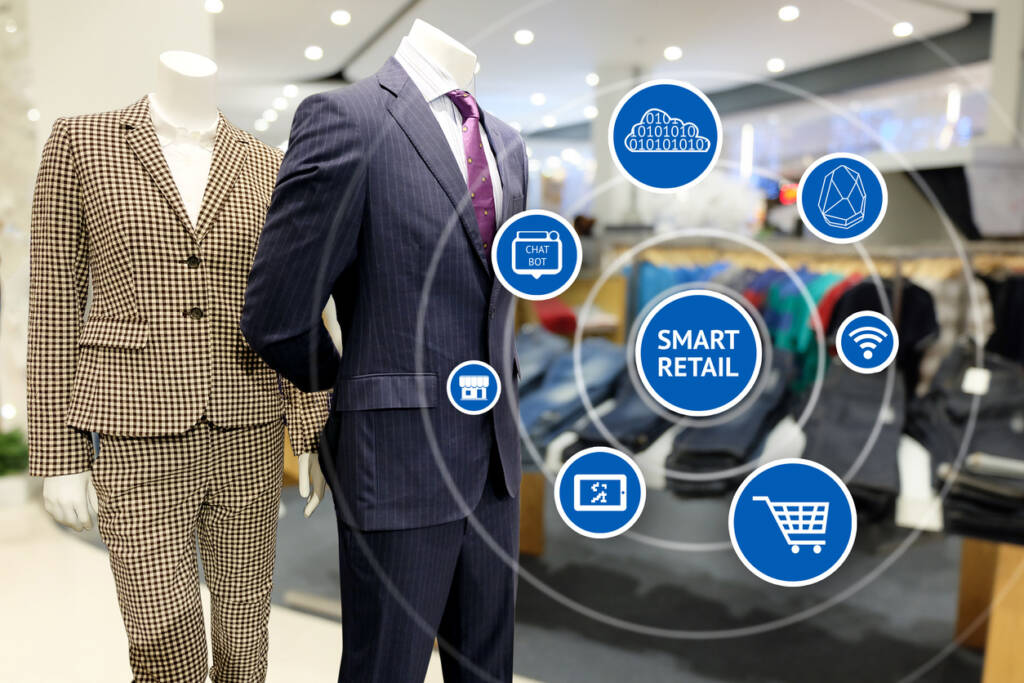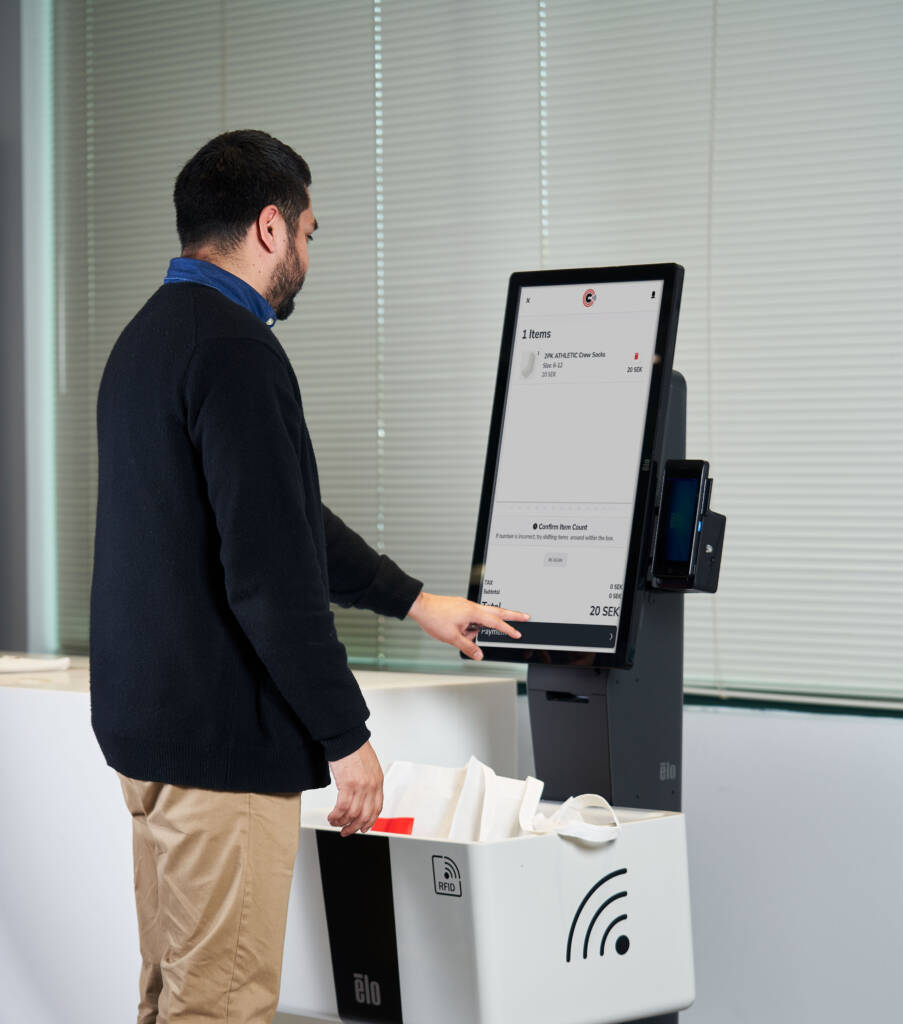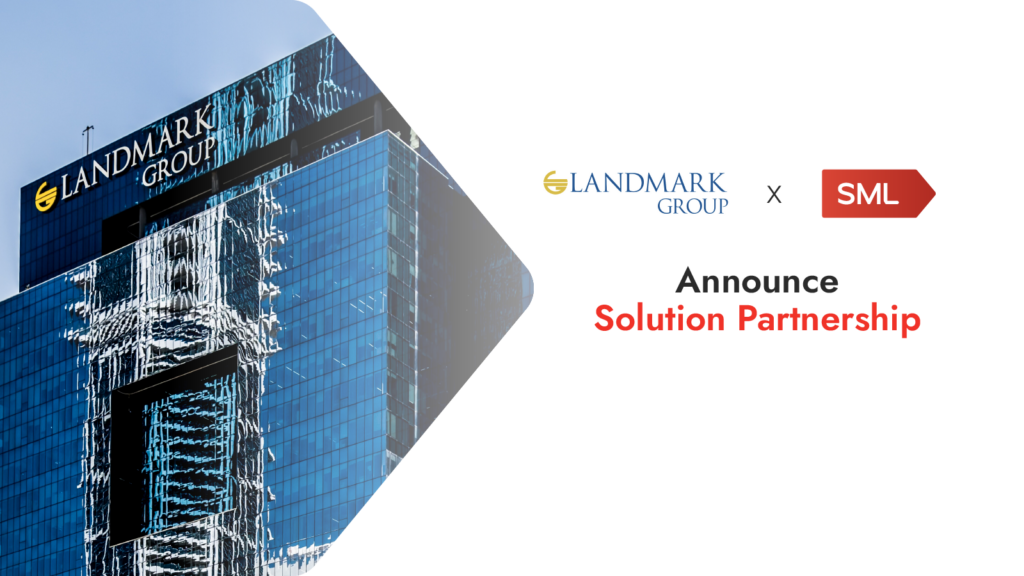The Growth of RFID in Retail
Over the last 20 years, RFID technology has seen advances in readability, range, and costs, with the read accuracy of handsets approximately doubling, and the range quintupling. The average cost of an RFID tag has fallen by 80% in the last decade and this, in combination with hardware costs reduced by 50%, has made a case for an improved return on investment with reduced barriers to implementation.
Post-COVID, RFID has taken on a new level of importance with a rapid increase in demand for omnichannel services, higher inventory accuracy, and a customer-driven approach to selling that requires retailers to have reliable real-time views of inventory. RFID technology is shaping improvements across inventory tracking, store operations, and customer experience as the rate of RFID adoption is higher than ever before.
Inventory tracking
As its primary application, RFID elevates and maintains inventory accuracy up to 98% in a retail enterprise while also lowering the cost and complexity of managing inventory throughout the entire supply chain. With a high level of accuracy, RFID technology allows retailers to increase the speed of picking, packing, and delivery, resulting in increased customer satisfaction. This improved inventory accuracy drives additional sales as more in-store and online orders are fulfilled and reliable inventory visibility is leveraged to drive process improvements.
Taking advantage of the wealth of data that RFID provides, retail managers can plan and adjust staffing based on the quantities and timings of inventory deliveries. Despite the challenges of supply chain interruptions and inventory shrink retailers can rely on RFID to monitor, and correct inventory levels as customer demands shift.
Store operations
On a broader scale, RFID puts a new level of control in the hands of retailers, allowing them to boost labor efficiencies, productivity and revenue. Providing solutions such as self-checkouts and scan-and-go solutions becomes easier with RFID, resulting in staff being available for store management and customer service. Not only this, self-service checkout solutions avoid checkout lines and crowding, providing retailers with a competitive advantage in an era where social distancing and speed of checkout are priorities.
The reverse supply chain is also benefited from RFID technology. Product returns are quicker and more efficient, and margin erosion is reduced on items that may otherwise be lost during the returns process. In addition, every major area of store operations improves when stated store inventory levels are accurate, and RFID enables this as part of its core value proposition.
Customer experience
With more straightforward inventory tracking and store operations, RFID has a further impact on retailers’ ability to focus on and prioritize the customer experience.
In the post-COVID era, customers are increasingly looking for in-store shopping experiences to be elevated and retailers need to continue to progress in order to differentiate themselves from competitors. Smart fitting rooms can provide customers with information on the sizes and colors in stock and provide personalized recommendations and advice on how to style a garment. These fitting rooms become a new way for retailers to gather data and insight on conversion and abandon rates so that they can adjust their services accordingly; ultimately, these types of experiences increase customer engagement through highly personalized experiences.
Retail in the RFID era
Retailers worldwide are continuing to experience ongoing issues with lockdowns, restrictions, and declines in consumer confidence and spending. To take full advantage of implementing RFID technology, retailers must be prepared to: have an agile mindset, be ready to test and learn, adopt a holistic approach, and make cross-functional changes across all areas of retail operations.
RFID has never been more critical than in today’s retail environment. Lowered costs mean RFID implementation is now more accessible, but retailers must remember that implementation requires commitment and an RFID partner who will educate and collaborate to attain the end goal.
To find out more about how RFID can grow your retail business, contact info@sml-rfid.com.


